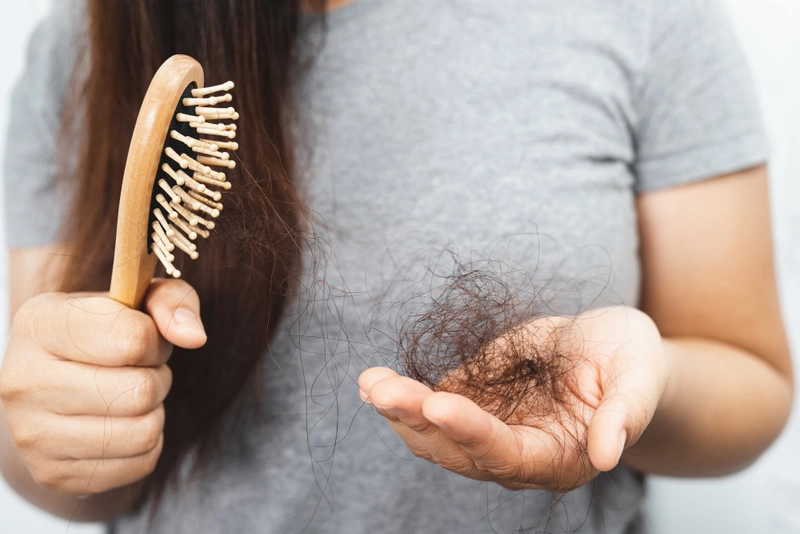- Published on: Aug 04, 2023
- 2 minute read
- By: Secondmedic Expert
Kombucha's Surprising Impact On Type 2 Diabetes: Unraveling The Potential Blood Sugar-Controlling Benefits
Introduction
Are you tired of conventional diabetes management approaches that seem to yield limited results? Have you ever wondered if there could be a natural, refreshing solution to help control your blood sugar levels effectively? Can kombucha truly help regulate blood sugar levels and improve diabetes management? Join us as we uncover the captivating world of kombucha and its possible role in revolutionizing type 2 diabetes management.
Type 2 diabetes is a chronic condition that affects millions of individuals worldwide. Managing blood sugar levels is a critical aspect of diabetes care, and traditional treatment approaches often involve medications, dietary adjustments, and exercise. However, an ancient fermented beverage known as kombucha has been gaining attention for its potential role in helping control blood sugar levels in individuals with type 2 diabetes. In this blog post, we will delve into the fascinating world of kombucha and explore how this probiotic-rich elixir might offer promising benefits for diabetes management.
1. Understanding Type 2 Diabetes and Blood Sugar Control
Before diving into the role of kombucha, it's essential to have a clear understanding of type 2 diabetes and the significance of maintaining stable blood sugar levels. We will explore the pathophysiology of the disease, its risk factors, and the potential consequences of uncontrolled blood sugar.
2. What is Kombucha?
To comprehend how kombucha can influence blood sugar, we'll provide an overview of this fermented tea beverage. From its historical roots to its modern popularity, we'll shed light on the intriguing process of kombucha fermentation and its unique components.
3. Probing the Science: Kombucha's Impact on Blood Sugar Levels
This section will delve into the scientific research conducted on kombucha and its potential effects on blood sugar regulation in individuals with type 2 diabetes. We'll explore studies that have investigated the beverage's impact on glucose metabolism, insulin sensitivity, and other relevant factors.
4. The Probiotic Connection: Gut Health and Blood Sugar
One of the key elements in kombucha is its probiotic content, which can influence gut health. This section will discuss the gut-blood sugar axis and how a balanced gut microbiome might positively affect blood sugar control in those with type 2 diabetes.
5. The Role of Antioxidants
Kombucha is rich in antioxidants, which play a crucial role in combating oxidative stress and inflammation. We'll explore how these antioxidants might contribute to blood sugar management and overall diabetes care.
6. Practical Tips: Incorporating Kombucha into a Diabetes-Friendly Diet
For individuals with type 2 diabetes who are interested in trying kombucha, it's crucial to provide practical tips on how to incorporate this beverage into their diet safely. We'll offer suggestions, address potential concerns, and discuss appropriate consumption levels.
7. Cautionary Notes and Considerations
While kombucha holds promise for individuals with type 2 diabetes, there are potential risks and limitations to be aware of. This section will highlight precautions, potential interactions with medications, and who should avoid kombucha altogether.
8. Personal Testimonials and Success Stories
To add a human touch to the blog, we can include anecdotes from individuals who have incorporated kombucha into their diabetes management routine. Hearing about real-life experiences can provide inspiration and motivation for readers.
Conclusion
In conclusion, while kombucha is not a substitute for traditional diabetes management strategies, it might offer a complementary approach to blood sugar control. As research continues to unfold, the potential benefits of kombucha for individuals with type 2 diabetes are indeed intriguing. Nevertheless, it's crucial for anyone with diabetes to consult with their healthcare provider before making any significant changes to their treatment plan.
Read FAQs
A. While kombucha has garnered attention for its potential benefits, it's essential to approach its consumption with caution. Kombucha does contain sugars and carbohydrates, which can affect blood sugar levels. Therefore, individuals with type 2 diabetes should be mindful of their portion sizes and monitor their blood sugar response after consuming kombucha. Additionally, it is crucial to consult with a healthcare provider before adding kombucha to your diet, as individual responses may vary based on the severity of the condition and other health factors.
A. Kombucha's potential effect on blood sugar levels may be attributed to several factors. Studies suggest that the probiotics found in kombucha might enhance gut health, leading to improved glucose metabolism and insulin sensitivity. Furthermore, the beverage's rich antioxidant content could help combat oxidative stress and inflammation, both of which play a role in blood sugar regulation. However, it's important to note that more research is needed to fully understand the mechanisms underlying kombucha's impact on blood sugar, and individual responses may vary.
A. Kombucha is not a substitute for traditional diabetes management strategies, such as medications, dietary adjustments, and exercise. It should be considered as a potential complementary approach to diabetes care. If you are currently undergoing diabetes treatment, it's vital to continue following your healthcare provider's recommendations and regularly monitor your blood sugar levels. Always consult with your healthcare team before making any significant changes to your diabetes management plan.
A. While kombucha can offer potential benefits, there are certain risks and considerations to be aware of. Kombucha is a fermented beverage that naturally contains trace amounts of alcohol, which may be a concern for individuals with certain medical conditions or those taking specific medications. Moreover, improper fermentation or contamination during the brewing process could lead to adverse effects. Some individuals may experience digestive discomfort or bloating when consuming kombucha, particularly if they are not accustomed to probiotic-rich foods. To minimize risks, it is advisable to choose commercially-produced kombucha from reputable brands and start with small servings to gauge individual tolerance. As with any dietary change, it's best to consult with a healthcare provider before incorporating kombucha into your routine, especially if you have any underlying health conditions.










